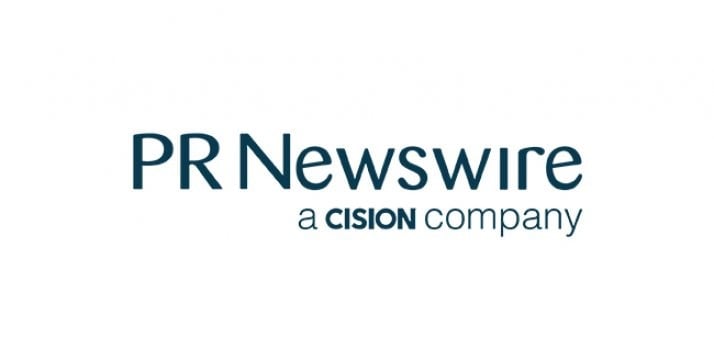Business new tamfitronics

- Guardant360® CDxis the first blood-based companion diagnostic to be approved in Japan for the detection of EGFR exon 20 insertion mutations
/PRNewswire/ — Guardant Health Japan Corp. (HQ: Minato-ku, Tokyo/ Representative Director: Mika Takaki), a leading precision oncology company, today announced that the Ministry of Health, Labour and Welfare (MHLW) in Japan has approved Guardant360®CDx as a companion diagnostic to identify EGFR exon 20 insertion mutations in patients with inoperable or recurrent non-small cell lung cancer (NSCLC) for consideration of treatment with amivantamab-vmjw combined with chemotherapy. This approval makes the Guardant360 CDx comprehensive genomic profiling panel the first blood-based companion diagnostic to be approved in Japan for the detection of EGFR exon 20 insertion mutations. Janssen Pharmaceutical K.K. (HQ: Chiyoda-ku, Tokyo/ Representative Director: Shuhei Sekiguchi), a Johnson & Johnson company, is currently seeking regulatory approval for the use of amivantamab-vmjw, a precision medicine, in Japan.
Lung cancer is one of the most prevalent and deadly cancers globally, with non-small cell lung cancer (NSCLC) representing approximately 80-85% of all lung cancer cases.1,2 In Japanmore than 136,000 cases of lung cancer were newly diagnosed in 2022.3 In a retrospective analysis, the Guardant360 test identified EGFR exon 20 insertion mutations in 2.4% of East Asian patients with NSCLC, including those from Japan.4 This regulatory approval of the test gives patients in Japan with inoperable or recurrent NSCLC harbouring EGFR exon 20 insertion mutations a greater opportunity to access targeted treatment options, such as amivantamab-vmjw combined with chemotherapy.
Guardant360 CDx was approved by MHLW in March 2022 for comprehensive genomic profiling in patients with advanced solid tumours. The test examines 74 cancer-related genes and is approved as a companion diagnostic for multiple cancer drugs approved in Japan.
Product information
|
Biomarker |
Cancer |
Companion diagnostic |
|
KRAS G12C |
Non-small cell lung |
sotorasiv |
|
ERBB2 (HER2) mutations |
trastuzumab deruxtecan |
|
|
EGFR exon 20 insertion mutation |
amivantamab-vmjw |
|
|
BRAF V600E |
Colorectal |
encorafenib, binimetinib and cetuximab encorafenib and cetuximab |
|
KRAS/NRAS |
cetuximab or panitumumab |
|
|
ERBB2 copy number alteration (HER2 amplification) |
trastuzumab and pertuzumab |
|
|
MSI-High |
nivolumab |
|
|
Solid |
pembrolizumab |
Note: Underlined items have been added with this approval
About Guardant360® CDx
Guardant360® CDx is a liquid biopsy test that uses next generation sequencing to analyse circulating tumour DNA (ctDNA), which is produced when tumours shed small pieces of their genetic material into the bloodstream. The test provides comprehensive genomic profiling results from a simple blood draw, helping oncologists move beyond the limitations of tissue biopsies to obtain clinically relevant information in time to match patients to the optimal personalised treatment.
About Guardant Health
Guardant Health is a leading precision oncology company focused on guarding wellness and giving every person more time free from cancer. Founded in 2012, Guardant Health is transforming patient care and accelerating new cancer therapies by providing critical insights into what drives disease through its advanced blood and tissue tests, real-world data and AI analytics. Guardant tests help improve outcomes across all stages of care, including screening to find cancer early, monitoring for recurrence in early-stage cancer, and treatment selection for patients with advanced cancer*. For more information, please visit https://guardanthealthjapan.com and follow the company on LinkedIn.
* The complete portfolio of Guardant Health products may not be available in all regions.
Forward-Looking Statements
This news release contains forward-looking statements within the meaning of federal securities laws, including statements regarding the potential utilities, values, benefits and advantages of Guardant Health’s liquid biopsy tests or assays, which involve risks and uncertainties that could cause the actual results to differ materially from the anticipated results and expectations expressed in these forward-looking statements. These statements are based on current expectations, forecasts and assumptions, and actual outcomes and results could differ materially from these statements due to a number of factors. These and additional risks and uncertainties that could affect Guardant Health’s financial and operating results and cause actual results to differ materially from those indicated by the forward-looking statements made in this news release include those discussed under the captions “Risk Factors” and “Management’s Discussion and Analysis of Financial Condition and Results of Operation” and elsewhere in its Annual Report on Form 10-K for the year ended December 31, 2023and in its other reports filed with or furnished to the Securities and Exchange Commission thereafter. The forward-looking statements in this news release are based on information available to Guardant Health as of the date hereof, and Guardant Health disclaims any obligation to update any forward-looking statements provided to reflect any change in its expectations or any change in events, conditions, or circumstances on which any such statement is based, except as required by law. These forward-looking statements should not be relied upon as representing Guardant Health’s views as of any date subsequent to the date of this press release.
References
1. BrayF., Laversanne, M., Sung, H., Ferlay, J., Siegel, R. L., Soerjomataram, I., & Jemal, A. (2024). Global cancer statistics 2022: GLOBOCAN estimates of incidence and mortality worldwide for 36 cancers in 185 countries. CA: a cancer journal for clinicians, 74(3), 229–263. https://doi.org/10.3322/caac.21834
2. Sharma R. (2022). Mapping of global, regional and national incidence, mortality and mortality-to-incidence ratio of lung cancer in 2020 and 2050.International journal of clinical oncology,27(4), 665–675. https://doi.org/10.1007/s10147-021-02108-2
3. Ferlay J, Ervik M, Lam F, Laversanne M, Colombet M, Mery L, Piñeros M, Znaor A, Soerjomataram I, Bray F (2024). Global Cancer Observatory: Cancer Today. Lyon, France: International Agency for Research on Cancer. Available from: https://gco.iarc.who.int/today, accessed[[29 July 2024].
4. Cho, B. C., Loong, H. H. F., Tsai, C. M., Teo, M. L. P., Kim, H. R., Lim, S. M., Jain, S., Olsen, S., & Park, K. (2022). Genomic Landscape of Non-Small Cell Lung Cancer (NSCLC) in East Asia Using Circulating Tumor DNA (ctDNA) in Clinical Practice. Current oncology (Toronto, Ont.), 29(3), 2154–2164. https://doi.org/10.3390/curroncol29030174
Media Contact:
Corporate Communications, Guardant Health Japan
[email protected]



